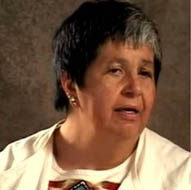The following is a letter to Canada’s parliamentarians from Lower Nicola Band member Sharon McIvor, who has fought for the rights of aboriginal women for 20 years. She wants MPs to vote against the upcoming Bill C-3, Gender Equity in Indian Registration Act.
Below she explains her opposition to the bill, even though it would benefit members of her own family, and describes the history of a movement amongst First Nations women now half a century old.
May 18, 2010
Dear Members of Parliament,
My name is Sharon McIvor. I am a Thompson Indian and a member of the Lower Nicola Band. I am the plaintiff in McIvor v. Canada, the section 15 constitutional challenge to the status registration provisions of the Indian Act. I am writing today to ask you to vote against Bill C-3, Gender Equity in Indian Registration Act.
According to the Honourable Chuck Strahl, Minister of Indian Affairs and Northern Development, Bill C-3 will make about 45,000 people newly eligible for registration as Indians. But Bill C-3 will not end the sex discrimination in the status registration provisions of the Indian Act.
In 1989, I decided to challenge the sex discrimination in the registration provisions because, as a woman, I was not treated equally as a transmitter of status, and, as a result, my own children and grandchildren were ineligible for registered status. I also decided to challenge the sex discrimination because I was not unique. Many thousands of other Aboriginal women and their descendants are denied Indian status because of sex discrimination.
Since I began my constitutional challenge, the support has been overwhelming. It has come from every corner: from individual Aboriginal women and their children and grandchildren who have personally thanked me for fighting for them, from national and local Aboriginal organizations, from Bands, from many women’s organizations, from unions, and from church groups. Organizations and individuals have raised money to help me, held events to educate themselves and others about the continuing discrimination, and passed resolutions in their organizations to support me.
Now women from Wendake, Quebec, are on a 500-kilometre march to support the complete removal of sex discrimination from the registration provisions of the Indian Act. So far, they have the support of the Native Women’s Association of Canada, the Assembly of First Nations, the Fédération des Femmes du Québec, and Amnesty International (section canadienne-francophone). By the time they reach Ottawa, they are likely to have gathered more support.
Many people in Canada, Aboriginal and non-Aboriginal, know that this is a struggle for justice and that the discrimination against Aboriginal women and their descendants should end.
But Bill C-3 does not end it. Like 1985 legislation — Bill C-31, Bill C-3 will provide a remedy for some Aboriginal women and their descendants, but continue the discrimination against many more. Bill C-3 will still exclude: 1) grandchildren born prior to September 4, 1951 who are descendants of a status woman who married out; 2) descendants of Indian women who co-parented in common law unions with non-status men; and 3) the illegitimate female children of male Indians. These Aboriginal women and their descendants are only ineligible for registration as Indians because of the entrenched discrimination in the Indian Act, which has been fiercely held onto by Canada, despite years of protest and repeated, damning criticisms by United Nations treaty bodies.
Bill C-3 will not even confer equal registration status on those who will be newly eligible. The grandchildren of Indian women who married out will only receive section 6(2) status, and never section 6(1) status. So even those who will be newly entitled to status under Bill C-3 will be treated in a discriminatory way because their Aboriginal ancestor was a woman, not a man. The “second generation cut-off” will apply to the female line descendants a generation earlier than it does to their male line counterparts.
Bill C-3 would benefit my own son and grandchildren. Nonetheless, I ask you to defeat Bill C-3 if it comes to a vote in the House of Commons. It is time for Canada to stop discriminating against Aboriginal women as transmitters of status. The Prime Minister, Stephen Harper, and the Minister of Indian Affairs and Northern Development, Chuck Strahl, should replace Bill C-3 with legislation that will do this, finally and completely.
My own struggle has taken 20 years. Before me, Mary Two-Axe Early, Jeanette Corbière Lavell, Yvonne Bedard, and Sandra Lovelace all fought to end sex discrimination against Aboriginal women in the status registration provisions in the Indian Act. It has been about 50 years now. Surely this is long enough.
Please stand for justice and equality for Aboriginal women and their descendants.
Sincerely,
Sharon McIvor



